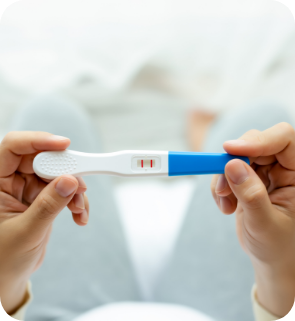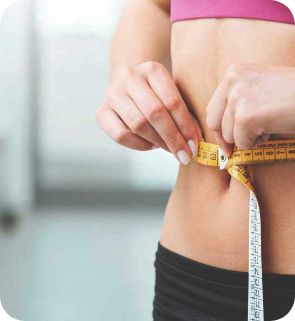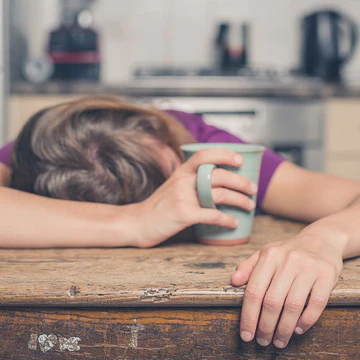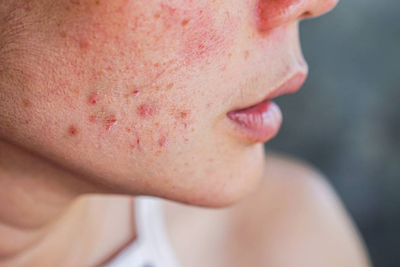
How To Lose Weight With PCOS: Basics 101
"YOU SHOULD LOSE WEIGHT FOR YOUR PCOS"
LOSE WEIGHT WITH PCOS
is by far the single most common piece of advice given to women with PCOS. Unfortunately, it’s never followed up with “and here’s exactly how to do it”. And therein lies the issue.. if losing weight is so great for PCOS then why the heck is no one explaining to women with PCOS how to go about it?
The first reason is that PCOS is a medical diagnosis, meaning that the expert you’re dealing with is going to be a doctor, endocrinologist or gynaecologist. These people are experts at what they do but, the issue is that weight loss has nothing to do with medicine.
Losing weight is a lifestyle behaviour process; something that these experts truly have no idea about. In 2020, this is what the big issue is: the expert you go to to be diagnosed with PCOS can’t actually treat your PCOS.
HOW DOES LOSING WEIGHT BENEFIT PCOS?
The reason that you’ve been told to lose weight for your PCOS is because losing weight, or to be specific, losing body fat, should help to better balance your hormones. Not to mention, the activities you must do in order to lose weight, such as eating healthy, exercising regularly should also help to balance your hormones.
I always state ‘should’ because losing weight may not help every woman with PCOS. It really comes down to your individual case and where your PCOS is rooted. For some women, their PCOS type or the root cause of their PCOS is not affecting, or affected by their body weight, so for these women losing weight will unfortunately not help their PCOS.
But, for the majority of women with PCOS, losing body fat should help, not to mention that it's just healthy to be at a healthy body weight, whatever that is for you. Remember, we’re all different.
For women with PCOS, losing weight has been shown to:
- Reverse their insulin resistance
- Lower their androgen (testosterone) levels
- Lower inflammation
- Improve mood
- Improve energy levels
For a long time we used to believe that adipose tissue, or fat tissue was pretty much dormant. We now know that fat tissue actually acts just like any other endocrine gland, meaning that it produces it’s own hormones.
Fat tissue can produce both androgens and estrogen hormones. The more body fat you have, the more potential there is for your fat tissue to be producing larger amounts of these hormones. And remember what I always say? Whenever hormones go high or low, you’re going to have issues.
As we know, it’s insulin resistance, excess androgens, and inflammation that is at the heart of your PCOS symptoms so if losing weight can help with all of these things, you can see why “go and lose weight” is common advice you’ve probably heard 1,000 times before.
THE BIG PROBLEM WITH LOSING WEIGHT WITH PCOS
My educated guess is that if you’re reading this you’ve tried to lose weight in the past and one of two things happened, you either:
- Tried your best to lose weight but no matter what you did, the scales didn’t budge; or,
- You lost some weight but the second you took your foot off the pedal it all came back on a lot faster than you lost it
This is the battle facing most women with PCOS and let me explain to you exactly why this happens. For the general public, losing weight is an energy balance. It’s a simple as this -
Eat less energy (calories) than you burn each day and you will lose weight.
You see, less energy coming in than going out means your body turns to its backup supply of energy to make up for the missing requirements. What is this backup energy your body has? It’s stored in body fat.
So, while a person diets, they are constantly dipping into this stored backup, it’s like you’re constantly dipping into your savings. If you do that over an amount of time what happens? You go broke! Your savings account looks really skinny. The same goes for your body fat stores.
So, for most people out there losing weight is all about energy balance but, for women with PCOS, losing weight is all about hormonal balance - and that is the most important thing for you to understand.
The reason so many women with PCOS struggle to lose weight is because they follow general guidelines for losing weight. They do what their friend at work is doing, who doesn’t have PCOS. They follow the latest fad diet they see online. Essentially, they take an energy balance approach to a hormonal problem. It’s like putting a square peg in a round hole.
Think about it like this.. Is it really true that every single woman with PCOS is out here eating more calories and being less active than women without PCOS? Like, really? Is it a fact that women with PCOS are just lazier than women without PCOS? Are women with PCOS just better at making excuses?
Excuse my french but f**k no.
Women with PCOS are just following the wrong plan, and it’s not their fault. I bet my entire life savings that you’ve never been truly sat down and taught how PCOS affect body weight, and how to lose weight with PCOS. Hence, this article.
So, if it’s an hormonal imbalance driving your weight gain, then losing weight is going to come by balancing these hormones. Calories are still important, you must still be in a calorie deficit in order to lose weight, you simply cannot get around the first law of thermodynamics but, if you don’t address your hormonal problems then you are either going to..
- No matter what you do, the scales won’t budge. Or,
- Lose some weight but the second you take your foot off the pedal it will all came back on a lot faster than you lost it
HERE ARE THE BASICS FOR LOSING WEIGHT WITH PCOS:
Losing weight is a result; it’s a result of actions. For example, for someone to lose 10 kilos (result) she most likely would have been eating healthy and exercising regularly (actions). Therefore, if in order to lose weight with PCOS you need to:
1) Be in a calorie deficit
2) Be in hormonal balance
Then you must set your days up in a way that allows you to enjoy taking the actions required to achieve these two goals. Notice I said ‘enjoy’, this is one aspect of losing weight that is never spoken about. The fact is, if you don’t enjoy doing what you need to do in order to lose weight, you’ll lose motivation and quit.
You must set your days up in a way in which you enjoy, and you can sustain long-term. It’s not good forcing yourself to get to the gym at 5AM in the morning if you truly just hate it, you’re just not going to stick at it and I don’t want that for you.
I want you to succeed, I want you to be happy, I want you to take control of your PCOS so, always remember that enjoyment comes before just about everything else. If you like the gym, go. If you like training at home, do that. If you only like walking then lace your shoes up and hit the pavement. Do. What. You. Enjoy. While ensuring that what you’re doing is also helping you to achieve the two results above.
So we know what our two results are: to be in a calorie deficit and to be in hormonal balance now, how do we get there. Well, firstly you need to know what your TDEE is. Your TDEE simply stands for Total Daily Energy Expenditure. It’s a rough calculation for how many calories a day your body will burn.
You need to know this because this number is like how much money you earn, remember that to lose weight you want to be dipping into your savings. This means that you need to know your TDEE so you know roughly how many calories to eat. For example, if your TDEE is 2,000 calories a day, you know to achieve a calorie deficit you must eat less than 2,000 calories a day.
Click here after you’ve read the entire article as I’ve linked to a free TDEE calculator but, a quick note. These TDEE calculators are only rough guides and are most likely not 100% accurate so don’t take it as gospel because there’s so many factors that actually affect the number of calories you burn each day. But, it’s a great start for a rough idea.
Nutrition
In terms of your diet, there are a few key guidelines that work amazingly for my PCOS clients. They are:
- Shoot for 50% protein, 25% carbs, and 25% fats for your macronutrient split.
- Ensure your carbs are mostly Low-GI carbs (rolled oats, sweet potato, brown rice or long-grain white rice, udon noodles, baked beans)
- Pack your plate full of anti-inflammatory foods (tomatoes, olive oil, green leafy vegetables, nuts, fatty fish, and berries)
- Eat regularly - every 3 hours or so
- Don’t skip breakfast
Exercise
Exercise can be so helpful that it needs to be one of your non-negotiables. All exercise will have a metabolic and hormonal result meaning, that if you choose the right exercises you can impact your hormones in the correct way.
For example, HIIT exercise helps to turn on hormone-sensitive lipase, an enzyme which helps to gear your metabolism towards fat burning instead of fat storing.
There are three types of exercise you want to be doing for PCOS, and they are:
1) RESISTANCE EXERCISE
Resistance training is things like weights, dumbbells, kettlebells etc that help to build lean muscle tissue. This helps to increase metabolism and balance hormones. Ideally, perform between 2-5 resistance sessions per week.
2) RESTORATIVE EXERCISE
Restorative exercise is anything that is active but helps to heal and restore your mind, body, soul. So, things like slow walking, yoga, stretching etc. Anything that will help to have a restorative effect on your body. Ideally, perform between 1-4 restorative sessions per week for 15 to 45 minutes each.
3) HIIT EXERCISE
HIIT stands for High-Intensity Interval Training and is short (10-20 min) bursts of intense exercise. So things like going all out on the rower machine for 20 seconds followed by a 40 second rest. And then repeated for 10 minutes. Ideally, perform between 1-2 HIIT sessions per week.
Sleep
Sleep is the master reset for your entire hormonal system. In fact, many hormones rely on your sleep / wake cycle to work properly.
For example, hormones such as melatonin make you feel sleepy at night when your eyes pick up on the fading light. Other hormones such as aldosterone and antidiuretic hormone ensure you don't need to go to the toilet too frequently while you are asleep so you stay asleep. And Cortisol spikes in the morning helping you wake up from your slumber.
Sleep allows many of your hormones to replenish so you have the optimal energy, immunity, appetite and coping ability to face the following day’s highs and lows.
Poor sleep leads to;
- Decreased energy levels
- Increased hunger levels (ghrelin)
- Decreased feeling of fullness (leptin) meaning that you can more without feeling full
- Increased stress (cortisol)
- Increased insulin resistance (insulin)
- Increased belly fat gain
- Decreased focus, concentration, problem-solving skills
- Increased irritability
Women with PCOS are most susceptible to sleep disorders such as sleep apnea or insomnia - due to the hormonal environment PCOS creates. So, an overall healthy lifestyle should help to improve your sleep, but here are some tips to maximise the quantity and quality of your sleep..
1) Keep a sleep schedule - this means try and get into bed at the same time each night, even on the weekend. Also, set the alarm for the same time each morning 7 days per week.
2) At night, turn all the lights off in the house as early as possible, stay off your phone as much as possible and keep the brightness on your TV down. Remember, that melatonin, the hormone that makes you tired is light sensitive.
3) Get as much daylight exposure during the day as possible.
4) Avoid napping in the afternoon.
5) Avoid caffeine, alcohol and cigarettes.
6) Keep your room as dark and cool as possible.
7) If needed, look into a melatonin supplement
Reduce Stress
Stress isn't something that a lot of women connect to their PCOS symptoms but, stress can be a trigger for many PCOS symptoms and for exacerbating them.
Stress isn't just a feeling, that feeling is connected to a hormone release that can impact your entire hormonal system, mood, food choices, energy levels, and brain chemistry.
Whenever you're stressed, your adrenal gland produces stress hormones. Cortisol, your primary stress hormone, increases blood sugar levels which, in turn, will increase insulin production because remember, insulin is released when blood sugar levels rise. Like, when cortisol causes blood sugar levels to increase when you're stressed.
This will obviously have a negative impact on any insulin resistance and the downstream symptoms of insulin resistance, such as ovarian androgen excess, weight gain, poor energy levels, poor sleep etc.
Also, when your adrenals are producing cortisol they also turn on their production of DHEA, an adrenal androgen hormone which can lead to excess androgens in the bloodstream and symptoms like hair thinning/loss, hair growth, acne, and menstrual cycle irregularities.
Investigating the source of your stress is the first step, is it metabolic? physical? or emotional?. Once you find the source of your stress then it's time to find a solution to it.
Some other proven ways to reduce your stress levels are;
1) Exercise
2) Go for a walk out in nature
3)Stretch while listening to calming music
4) Take a nice long bath
5) Reduce your caffeine intake
6) Practice mindfulness
7) Yoga
Supplementation
I have never been huge on supplements for the general population but, for women with PCOS it’s game-changing. The metabolic and hormonal environment that PCOS can create can cause a number of key nutrient deficiencies. For example, it’s well known a large number of women with PCOS are deficient in vitamin D, zinc, magnesium, and folate.
The symptoms of these deficiencies can be fatigue, tiredness, frequent sickness, depression, hair loss, high blood pressure among others. I always advise that you need to be smart with your supplementation. I’ll outline your best options below.
For general balance: take a daily multivitamin, like Balance (PCOS Multivitamin), containing vitamin D, B vitamins, and magnesium
For insulin resistance: inositol, NAC, cinnamon, or apple cider vinegar
For androgen excess: Zinc and saw palmetto
For stress and anxiety: gaba, l-theanine, chamomile, passionflower
Putting It All Together
Losing weight with PCOS isn’t impossible. It’s just incredibly difficult when you take a calorie-only approach to it. But, when you combine that with a hormonal approach then achieving your goals becomes far easier.

















Leave a comment